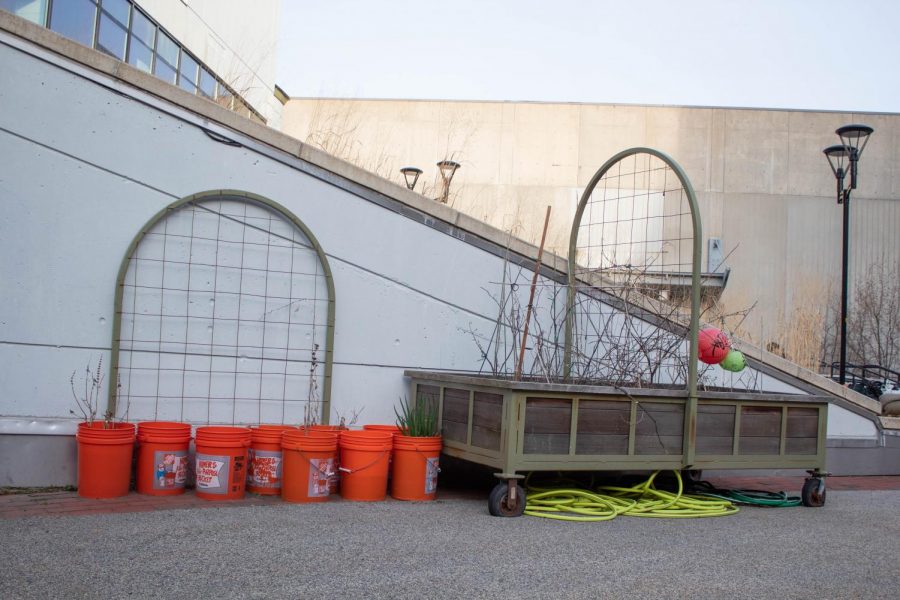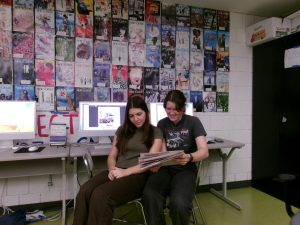CRLS Needs a Garden
Why High School Students Would Benefit From Having a Growing Space on Campus
Pictured: The closest thing CRLS has to a garden, a movable wheeled bed.
March 25, 2020
Among public schools across the country, having a garden on campus has been shown to be beneficial for elementary and middle school students in many ways, including by facilitating learning about gardening, promoting healthy diets, encouraging spending time outdoors, helping students connect with nature, and emphasizing the need to take care of our planet.
In the Boston area, CitySprouts, a nonprofit organization dedicated to creating opportunities for children ages three to fourteen to connect with the environment and natural world, has facilitated the planting of gardens in all elementary and middle schools in the Cambridge Public School District. Unfortunately, there has been limited enthusiasm for providing gardening spaces for high school students. High school students receive similar benefits from gardens as younger students do and have been shown to score higher on tests in all subjects when they have access to gardens. As the principal of Boston Public Schools has expressed in a statement on the CitySprouts website, “Our school garden gives students hands-on science opportunities, exposure to healthy vegetables and food education, and time to explore outdoors.” Similar sentiments of appreciation for the holistic benefits of gardening have been shared by several CRLS employees as well. Currently, CRLS is the only school in the Cambridge Public School District that does not have an outdoor vegetable garden on campus. Based on the results from a variety of interviews and surveys, most students at CRLS share an understanding and enthusiasm about the benefits of gardening.
In a survey of about 250 students from biology, culinary, health, and other classrooms that would be greatly impacted by having access to an outdoor classroom garden space, 91.4% of students agreed that a garden would be beneficial, while only 3.2% of students disagreed. Likewise, on an Instagram survey, 92% of the 330 CRLS student respondents agreed that a garden would benefit students. When asked why, students had a variety of responses ranging from mental health, to curriculum, to simply aesthetics. As Liliana Abramson ’20 said, “Gardening is super therapeutic. Sometimes you need to just rub your hands in some dirt to reduce stress.” Isla Mitchell ’22 added, “It would connect students to nature and teach responsibility. Having empathy for plants to take care of them and watch them grow can help us connect with the environment and get more interested in climate change.” With the support of students, teachers, administration, and the wider community, there is an opportunity for garden education to be expanded to high school students in the CPSD system as well. As Iman Abdullah ’22 said about the lack of garden space, “The middle school had one, so why can’t we?”










